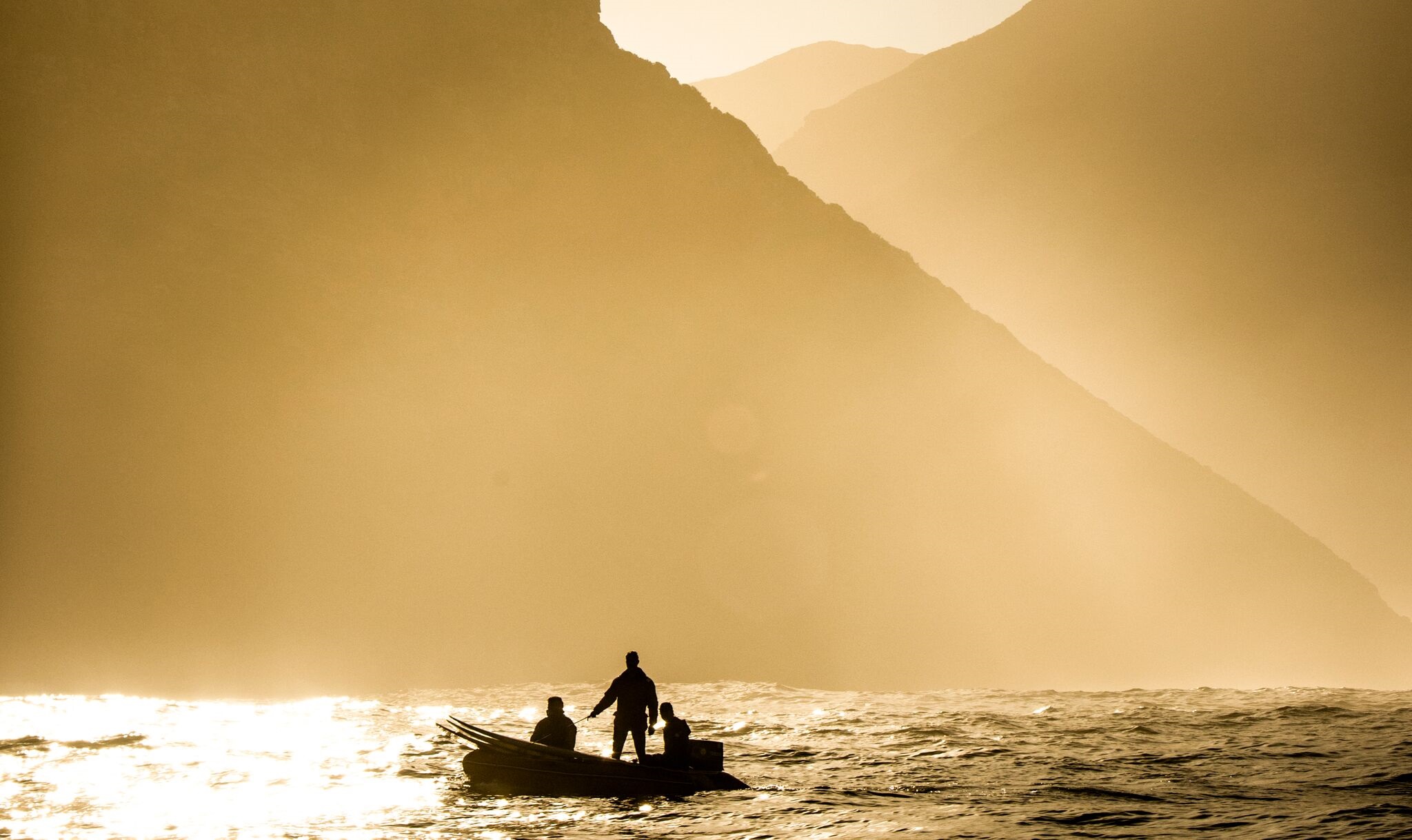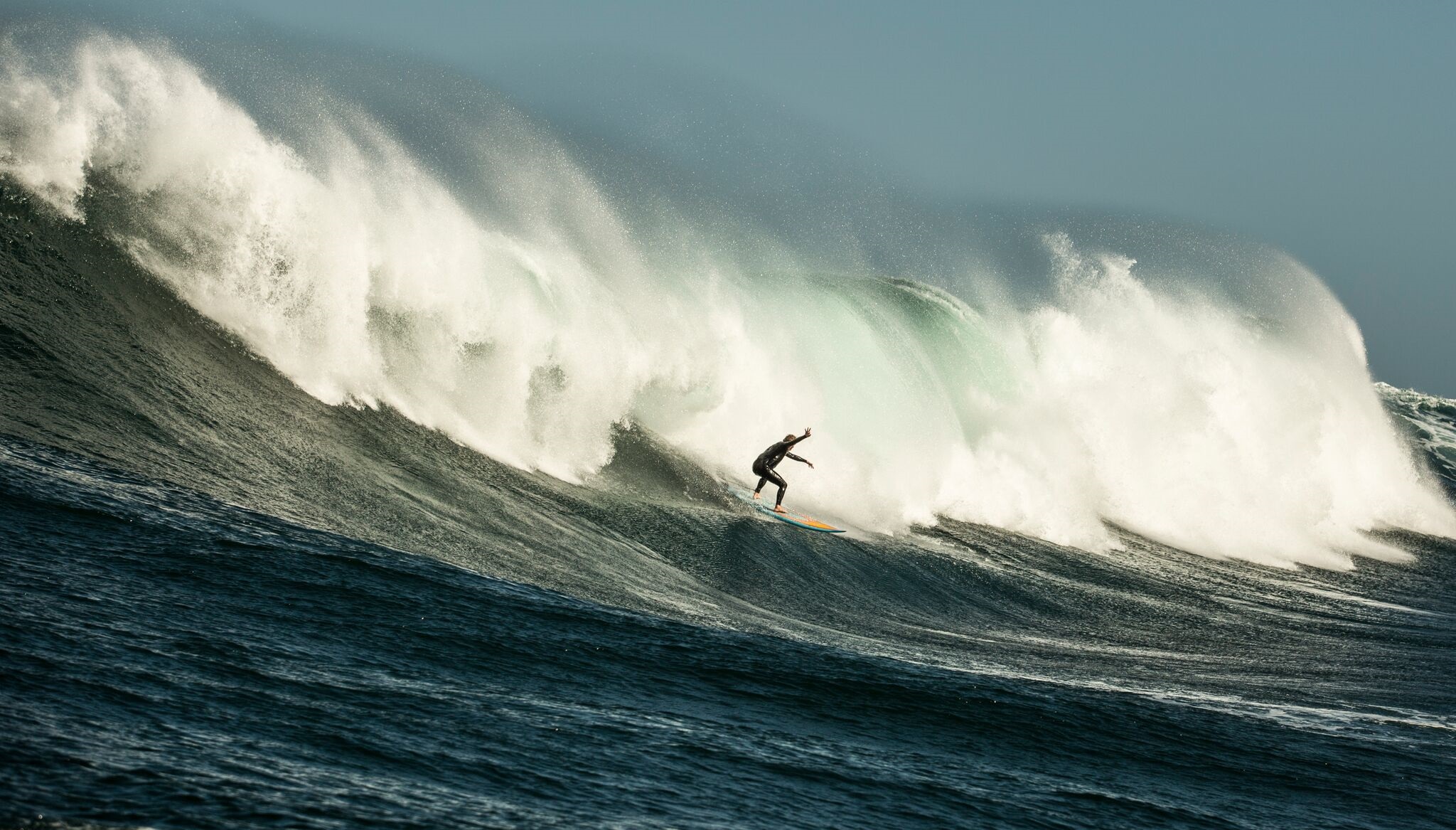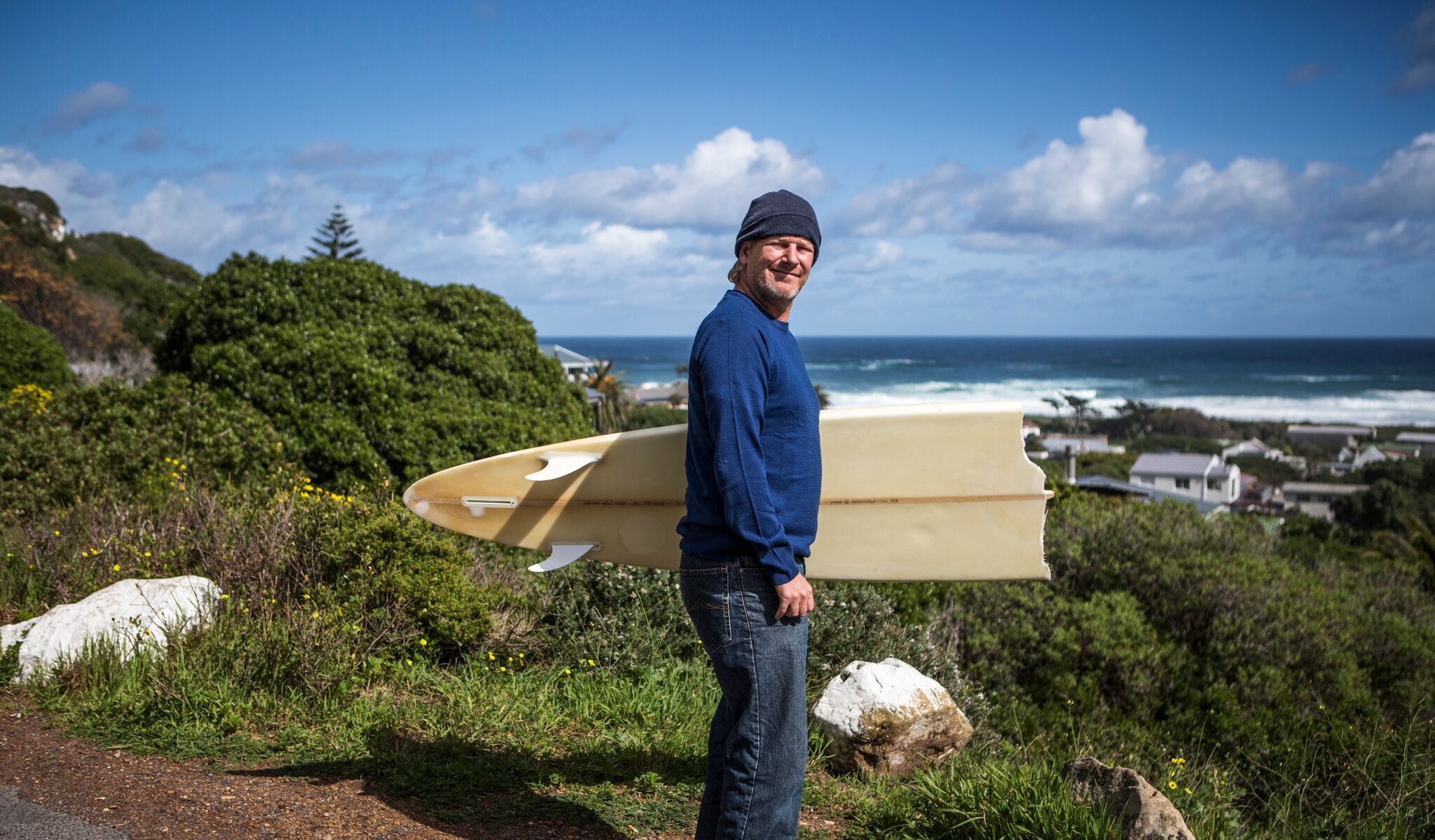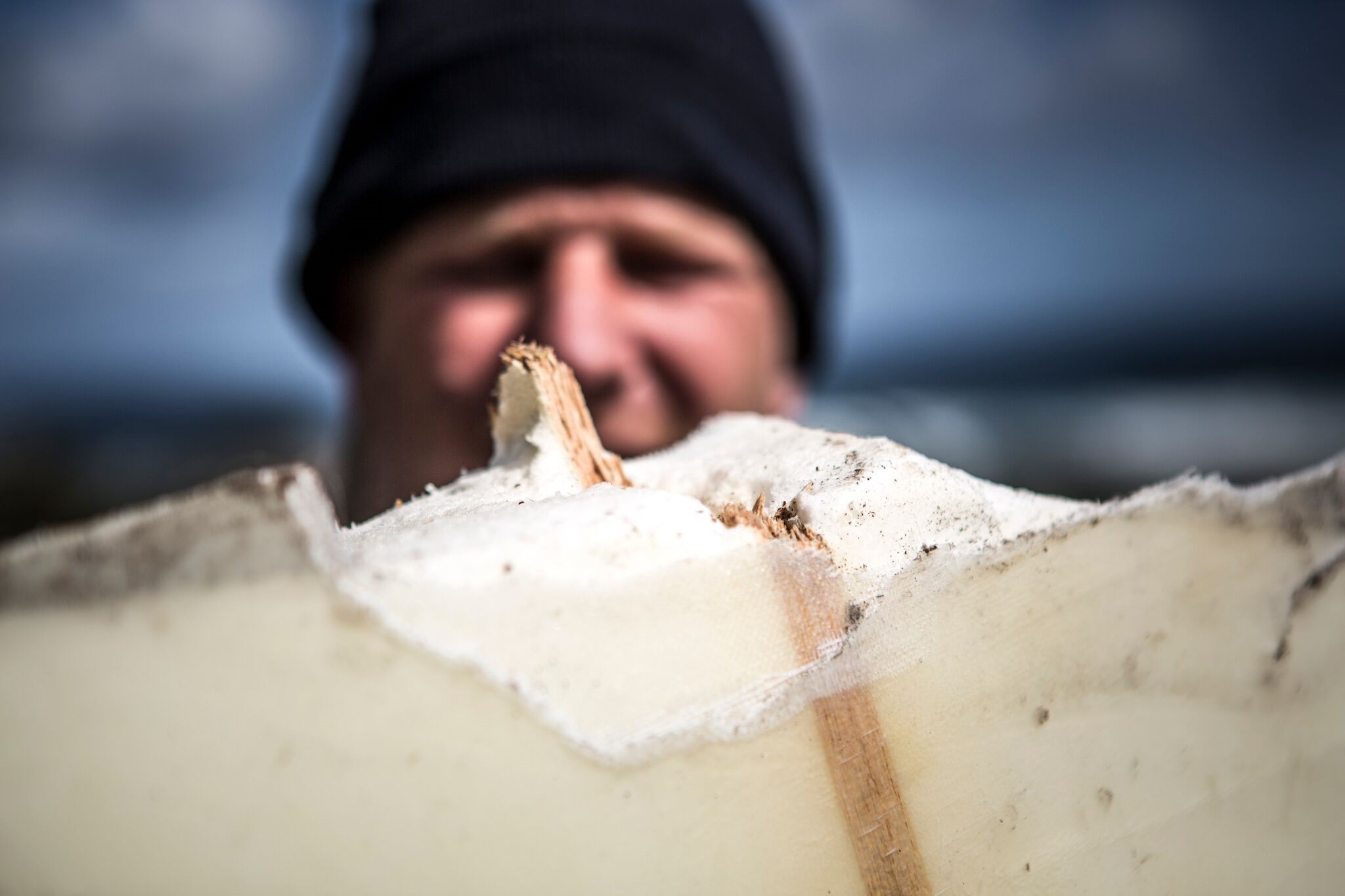JOHN FARRELL - "The Black Smith"
The 2016 Rebel Sessions event represents the opportunity to honour SA’s big wave surfing community.
Over the last 4 months we have recorded stories from many different aspects of our community. We felt it was important to not only honour the most skilled and experienced surfers, but also the new-comers and the ‘dark horses.’ We wanted to tell different stories, instead of simply recycling the old ones. It was important to us, that we represent the community as a whole. And so, to that end, we’ve interviewed surfers, shapers, a ‘near-death’ survivor, a safety specialist and now, someone who we think represents, “a surfers-surfer.”
John shifts uncomfortably in his chair and grimaces. “I’m not a big wave charger.” He says frankly. “I don’t want anyone to get that opinion of me. I don’t make any claims about my status or ability as a big wave rider. I’m on my own personal life-journey right now. I have a family and work, so I can’t give up everything to focus and reach the level that I know I’m capable of. I’ve been surfing Outer Kom since I was 14 and the Factory since I was 18, but I only went out to Sunset in my early 30’s. I only started surfing Dungeons after that. I’m 41 now.” He adds a second teaspoon of sugar and noisily stirs his coffee. We’re sitting in a little restaurant in Kommetjie. John installs swimming pools for a living and he’s left a nearby site to come and share his story with me. “So why did you wait so long before surfing Sunset?” I ask. “Because I was intimidated!” He answers without looking up. (It’s an ironic response. Because, since his youth, John has been a standout in solid waves. His skill and timing is held in high regard by all who surf with him.) “During those Big Wave Africa years when everyone was surfing Dungeons, I got really confident on the deep peak at The Factory. I also started riding bigger and better boards in that time. For years I only rode the factory on a 7 footer.” He chuckles. “What is ‘the B Team’ John?” I ask suddenly changing tack. He smiles and takes a sip of his sweet brew. “We’re a crew of guys who’ve been friends since school. We watch out for each other on land and when the waves get solid. We always have a plan when we paddle. We look-out for each other and so we can stay safe. As a result we were able to rescue our friend Seth from a potentially life threatening situation last year. We stick together. If one guy breaks a board or leash, then everyone stops surfing to help the other person. Especially when there are no jet ski’s to help with safety. If you’ve got to give up your surf to help your friend, then so be it. If you’re doing it for him, then he’ll do it for you.” I nod my head approvingly as he continues. “We place a high value on knowing where our personal limits are and respecting that. If it’s huge and I’m not feeling it, then the guys won’t pressure me to paddle out.”
(John is known by his crew as someone who is able to articulate the universal philosophies of our surfing tribe. It’s for this reason that I chose him as our final profile piece.)
“Riding big waves is not just physical, it’s mostly a mental game. I see parallels between big wave surfing and base jumping with a wing suit. If a guy goes straight from jumping out of a plane to jumping off a cliff with a wing suit, then he’s going to kill himself. You can’t just go and do it. There is a process of learning, accumulating experience and slow progression. You’ve got to learn about things like speed, depth of perception, scale, timing, how to read the elements, how to use your equipment, when to go and just as importantly……when not to go. It takes years and years of experience to train your intuition. I think that skill and etiquette has to be mastered in small waves before you take on the big stuff. If you have the courage, but not the skill or experience, then you take your life in your hands and put others at risk too. There are a lot of guys out there who have more courage than skill. I think courage is the most vital element in riding big waves, but skill needs to encouraged and nurtured. The skills you learn at 2ft are essential at 20ft.” John drains the last of the coffee from the mug he’s been holding and leans closer to me over the table. “Etiquette is about sharing.” He says quietly. “It’s easy to respect people who have good etiquette, regardless of their skill set. If we’re good at sharing, then we’re able to help each other. If we can share the waves then we’re able to encourage each other. The values of etiquette need to be shared in a kind and honouring way.”
At that point I asked John to articulate some of those values so that I could record them for this piece. This is what he said:
1. I have an impact vest, but not an inflation vest. If I need an inflation vest……then perhaps it’s beyond my limits? We all have different limits and we have to know what they are and respect them in each other.
2. If a guy is up and riding on a wave and by paddling for the shoulder the two of you might have a collision, then paddle for the white water and take a beating instead. It’s better for one person to be in danger than two of you. If you have to sacrifice your board to keep him safer - then so be it.
3. You need to know how to do CPR if you’re going to surf big waves.
4. When you paddle out, don’t go straight to the head of the line up. Let a set come through and then respectfully integrate. Same applies after riding a wave.
5. It’s better to pull out of a wave when there are people in front of you, than to put others at risk by going regardless.
6. When you paddle for a wave and miss it, don't paddle for the next one if there are other guys in the que.
7. If you see someone in trouble, stop surfing and help him, even if you don’t like the person - help him!
8. Work your way up slowly to riding big waves. The process should take several years.
9. Never surf alone.
Outside the sky is an aching wintery blue and a chilly wind is agitating the tree tops. John squints down at the empty cup in his hand and clears his throat. “Surfing is a deeply personal journey and so it’s a hard thing to teach someone. Values are different though, it’s easier to pass those on. That’s basic universal etiquette.”






